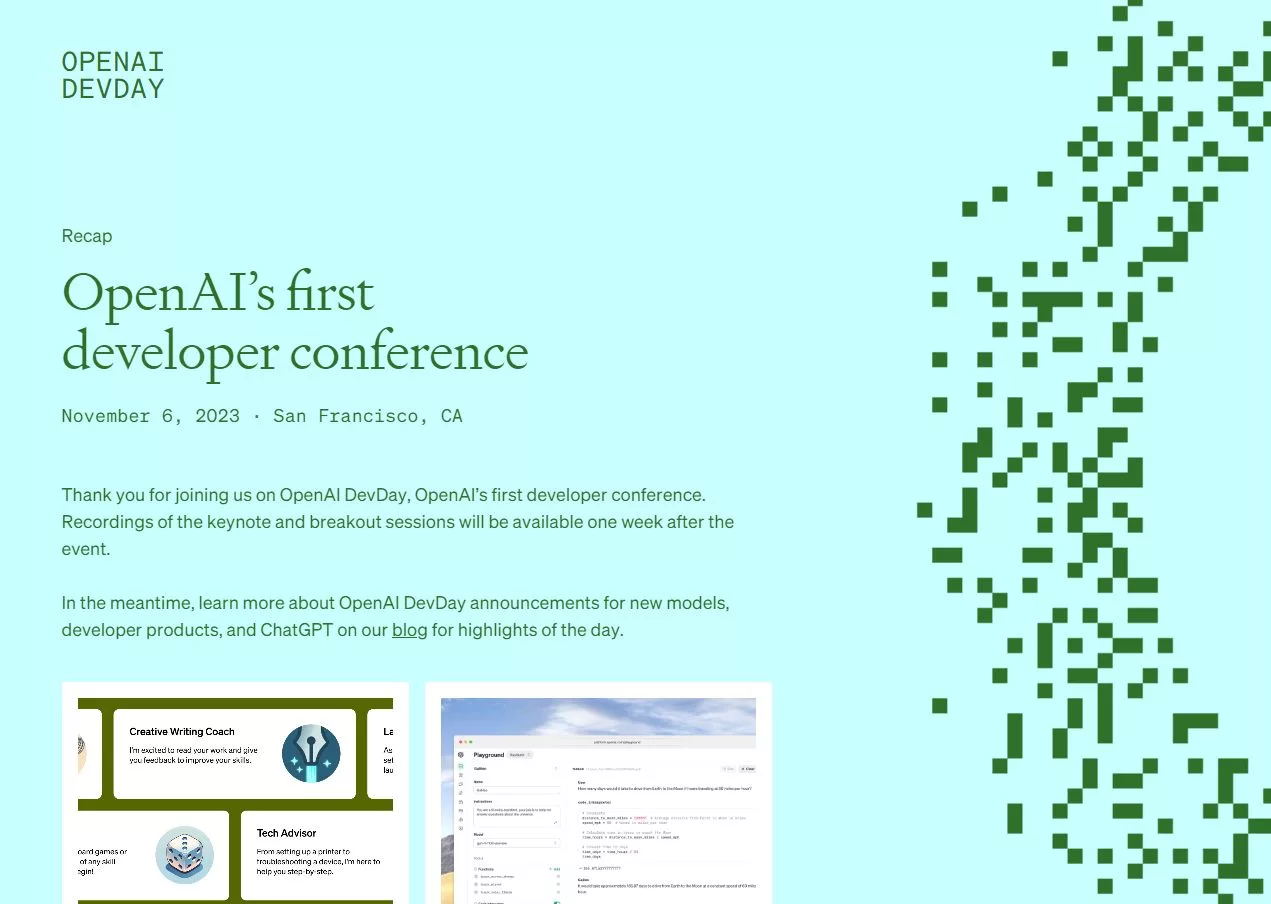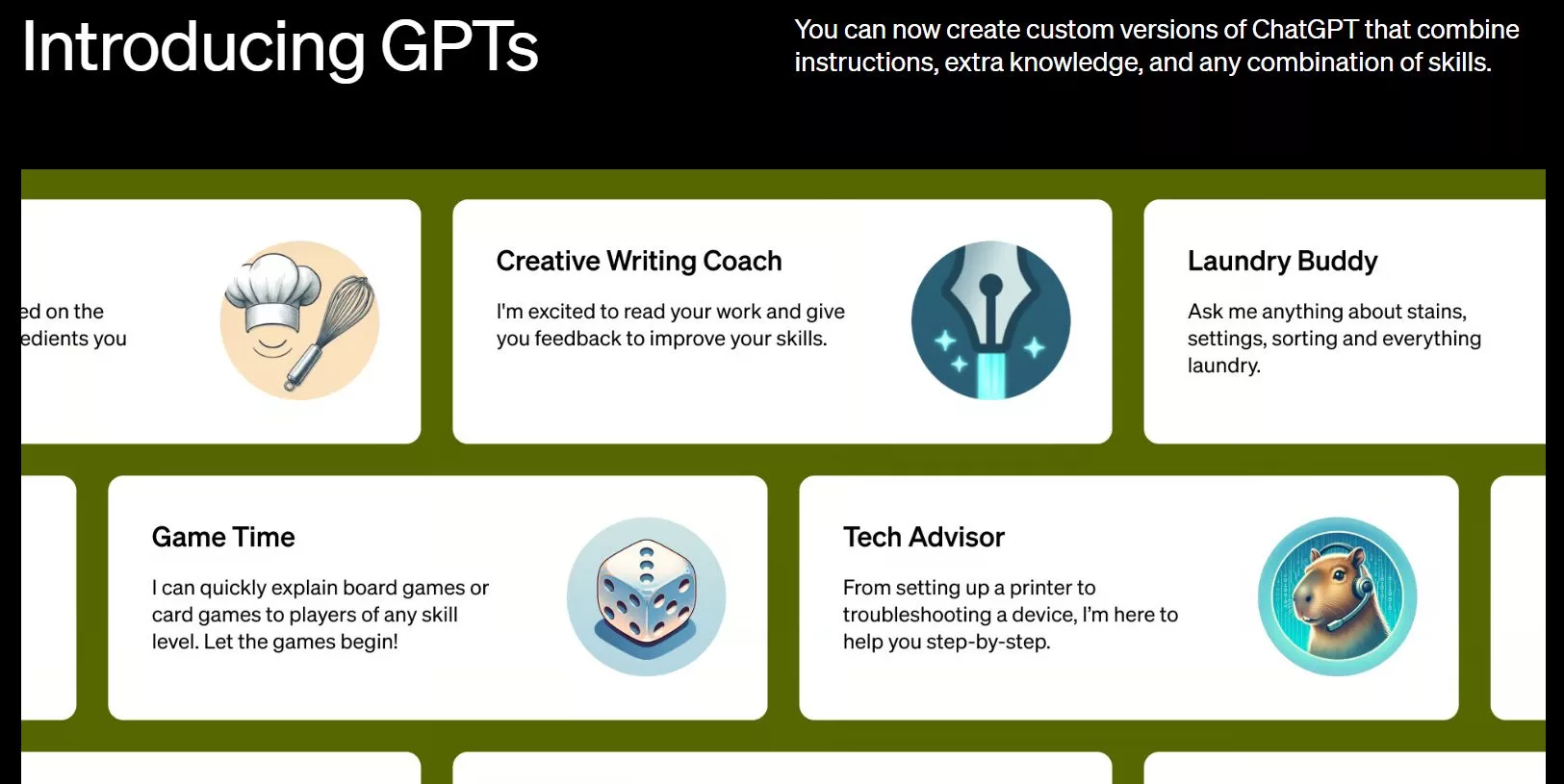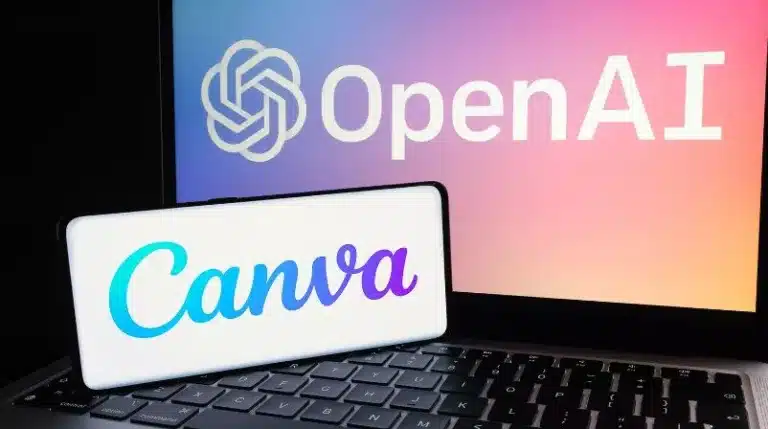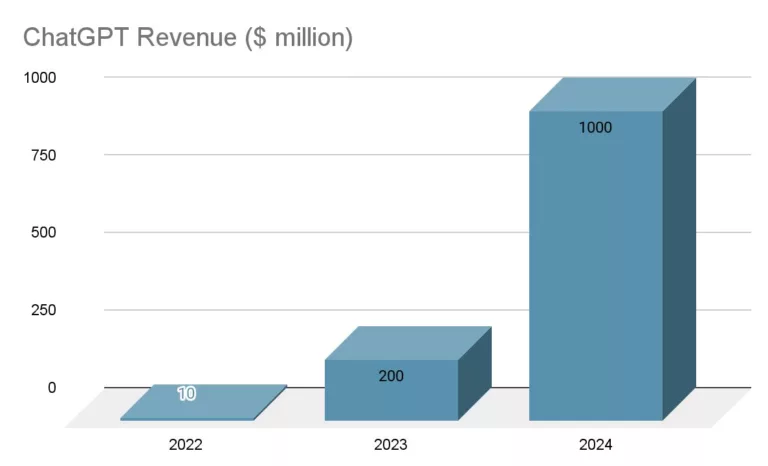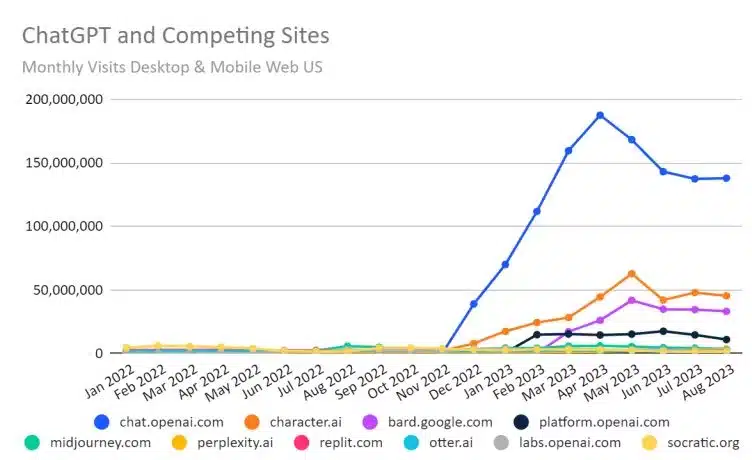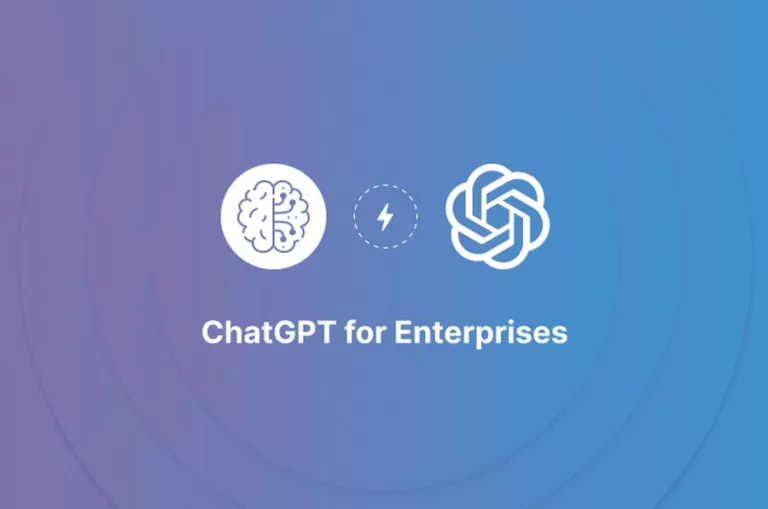OpenAI DevDay Announcements’ Impact on Jobs and Industry
The ground beneath our feet is shifting, and the tremors are coming from the rapid advancements in artificial intelligence.
Just yesterday, OpenAI’s DevDay sent ripples through the tech community, unveiling features that promise to reshape our world.
As an affiliate marketing expert, I’ve seen firsthand how AI can be a game-changer. But with great power comes great responsibility, and the question on everyone’s lips is:
what happens to the human workforce when AI can outperform us in our daily tasks?
In this article, I’ll walk you through the seismic changes OpenAI’s latest developments could bring to our professional landscape.
You’ll learn not just about the potential for increased efficiency but also about the human side of the equation.
What will happen to the job market?
How will current students and recent graduates fare in an AI-dominated world?
And most importantly, what can we do to prepare for this new era?
Stick with me, and I’ll share insights that could help you navigate the choppy waters ahead.
The Pace of Progress in AI
The clock is ticking, and for many industries, time is a luxury they no longer have. OpenAI’s DevDay was a showcase of the future, today.
With each announcement, it became clear that what was once the domain of science fiction is now our reality.
As someone who’s been in the trenches of affiliate marketing, I’ve seen tools like Jasper AI and Blaze AI transform the playing field. But the advancements presented at DevDay are something else entirely.
OpenAI DevDay 8 Main announcements
1. GPT-4 Turbo:
-
- Simplifies the creation of complex code with plain English prompts.
- Expands creative and productive possibilities for industries like marketing.
- Enhances the capability of AI tools to deliver highly personalized content.
2. Cost Reduction in GPT-4 Turbo:
-
- Makes advanced AI more accessible to startups and individual entrepreneurs.
- Encourages a surge in AI-driven innovation and personalized applications.
3. ChatGPT Knowledge Update:
-
- Ensures AI insights remain current, benefiting professionals across various fields.
- Keeps AI-driven tools at the forefront of technological advancement.
4. Copyright Shield:
-
- Provides legal reassurance for content creators using AI-generated material.
- Encourages more bold and creative use of AI in content creation.
5. Custom ChatGPT:
-
- Offers tailored customer service experiences for businesses.
- Potentially revolutionizes customer interactions with brand-specific AI capabilities.
6. GPT Store:
-
- Creates a marketplace for innovative GPTs, rewarding creators for utility and popularity.
- Opens new marketing avenues for AI tools and services.
7. ChatGPT Interface Upgrade:
-
- Presents a more professional and sleek user interface.
- Reflects the sophisticated capabilities of the AI in a user-friendly manner.
8. Microsoft Collaboration:
-
- Suggests a future of combined human and AI efforts toward more advanced goals.
- Indicates the need for evolving strategies and tools in marketing and other industries.
Imagine a world where creating complex code is as simple as describing what you want in plain English.
That’s the promise of GPT-4 Turbo, with its expansive token context window, allowing for longer, more detailed prompts.
This isn’t just a step forward; it’s a leap into a future where the barriers between idea and execution are almost non-existent.
For marketers, this means ad copy that’s not just persuasive but eerily in tune with the target audience’s desires.
The cost reduction in GPT-4 Turbo’s input and output tokens is not just a financial relief; it’s a democratization of AI.
It means startups and solo entrepreneurs can harness the same power as tech giants, leveling the playing field and igniting a new wave of innovation.
The implications are vast: from a surge in personalized apps to a boom in AI-driven content that could make platforms like SkillShare even more accessible and tailored.
The knowledge update to ChatGPT, bringing its understanding to April 2023, ensures that the AI’s insights and outputs are as fresh as the morning headlines.
This continuous learning curve is a boon for professionals who need to stay ahead of the curve.
The introduction of the copyright shield is a fortress of reassurance in a digital landscape often marred by legal uncertainties. Content creators can now breathe easier, knowing their AI-generated content is protected, bolstering the confidence to create freely and boldly.
Custom ChatGPT is a game-changer for personalized customer service. Imagine an AI that not only knows your brand’s voice but can also handle specific queries unique to your business.
The GPT Store is set to become the Etsy of AI, a place where the most innovative and effective GPTs are not just recognized but rewarded.
With the interface upgrade, ChatGPT becomes more than a tool; it becomes a partner, one that greets you with a sleek, professional look that matches its sophisticated capabilities.
This aligns perfectly with the aesthetic and functional demands of today’s tech-savvy professionals.
Lastly, the collaboration with Microsoft hints at a future where AI and human ambition meet to create something beyond our current understanding.
For those of us in the field, it’s a hint that our strategies, platforms, and tools will need to evolve just as rapidly as the AI we rely on.
AI and the Job Market
The job landscape is on the cusp of a revolution, and the tremors from OpenAI’s DevDay have only made the ground more unstable.
Here’s how the latest AI advancements could reshape employment:
- Risk to Repetitive Jobs: With GPT-4 Turbo’s ability to understand and execute complex tasks, jobs that involve repetitive, routine tasks are at high risk. This AI can potentially replace roles in data entry, customer support, and even some aspects of coding, which could lead to a significant shift in the job market.
- The Cost of Efficiency: The affordability of GPT-4 Turbo means that more companies can integrate AI into their operations. While this is a boon for innovation, it also means that businesses may opt for AI solutions over human employees to cut costs and increase efficiency.
- Customization and Job Specialization: Custom ChatGPT can handle specialized tasks, potentially reducing the need for certain job roles. However, it could also lead to new job opportunities in developing and managing these customized AI systems.
- Legal and Creative Safeguards: The copyright shield may protect creative jobs by encouraging the use of AI for content generation without the fear of legal repercussions. This could lead to a surge in creative AI applications, creating new roles for AI oversight and ethical management.
- Marketplace Dynamics: The GPT Store could create a new job sector focused on the development and sale of custom GPTs. This marketplace might require a new breed of AI product managers and marketers.
The transformation of the job market is inevitable, but it’s not all doom and gloom. With every door that closes, a window opens, and the key is to find where the fresh air is coming from.
Education in an AI World
The tremors felt in the job market extend to the realm of education.
As AI continues to advance, the question of relevance hangs heavy over the heads of students and educators alike:
- Curriculum Relevance: With AI like GPT-4 Turbo capable of performing tasks previously taught in schools, educational institutions must adapt their curricula to focus on skills that AI cannot easily replicate, such as critical thinking, creativity, and emotional intelligence.
- Lifelong Learning: The knowledge update feature of ChatGPT emphasizes the importance of continuous learning. Students and professionals alike must adopt a mindset of lifelong learning to stay relevant in an ever-evolving job market.
- Specialized Skills: The rise of custom AI solutions like Custom ChatGPT suggests that there will be a growing demand for specialized skills in AI customization and management. Education will need to pivot to provide the necessary training for these emerging roles.
- Legal and Ethical Education: As AI takes on more creative tasks, understanding the legal and ethical implications becomes crucial. Educational programs will need to incorporate these topics to prepare students for the complexities of an AI-integrated world.
- New Educational Tools: The collaboration with Microsoft and the development of platforms like the GPT Store indicate that educational tools themselves will become more sophisticated, leveraging AI to provide personalized learning experiences.
Education, like the job market, is at a crossroads. The path forward is not about competing with AI but about complementing it, preparing students for a future where AI is a tool, not a replacement.
The Top 10% and the Vulnerable 90%
The conversation around AI often centers on the elite few, the top 10% whose jobs are deemed safe from the clutches of automation.
Yet, the announcements from OpenAI’s DevDay suggest that the remaining 90% are not just vulnerable; they’re on the frontline of change:
- High-Skill Job Security: Advanced roles that require high levels of creativity, strategy, and human interaction may remain secure for now. The nuanced capabilities of GPT-4 Turbo, while impressive, cannot yet replicate the depth of human expertise and intuition.
- The Vulnerable Majority: For the vast majority, the updates to ChatGPT and the introduction of GPT-4 Turbo could mean that many administrative, clerical, and even some technical jobs may be at risk as businesses seek to capitalize on the efficiency and cost-effectiveness of AI.
- Developing Countries at Risk: The impact could be more pronounced in developing countries, where large portions of the population are employed in jobs that are considered routine and are thus more susceptible to being replaced by AI.
- A Shift in Workforce Dynamics: The GPT Store and the potential for custom AI solutions could create new niches and industries, but they also raise questions about the future of work. Will we see a gig economy for AI trainers and supervisors? How will traditional employment structures adapt?
Adapting to the AI Revolution
As the AI revolution unfolds, adaptation isn’t just a strategy; it’s a survival skill.
The key announcements from OpenAI’s DevDay provide a roadmap for how individuals and businesses can pivot:
- Embracing Lifelong Learning: The continuous updates to AI capabilities underscore the need for ongoing education and skill development. Platforms like SkillShare become not just resources but lifelines for those looking to stay relevant.
- Flexibility in Skill Development: Custom ChatGPT and the GPT Store highlight the importance of niche skills and the ability to quickly adapt to new tools and platforms.
- Innovation in Business Models: The cost reductions in GPT-4 Turbo suggest that businesses can innovate more freely, experimenting with AI in ways that were previously cost-prohibitive.
- Ethical and Legal Adaptation: The introduction of the copyright shield points to the growing importance of understanding the legal and ethical dimensions of AI in business practices.
- Collaborative Efforts: The partnership between OpenAI and Microsoft hints at the benefits of collaborative efforts in navigating the AI landscape, suggesting that partnerships and alliances will be key in leveraging AI for growth.
Adaptation is about foresight and flexibility. It’s about recognizing that the ground is shifting and being willing to move with it, rather than standing still and risking obsolescence.
The Role of Government and Policy
As AI technologies like those unveiled at OpenAI’s DevDay continue to advance, the role of government and policy becomes increasingly critical.
Governments around the world face the challenge of balancing innovation with the protection of their citizens’ livelihoods.
They must consider interventions that could include retraining programs, incentives for businesses that invest in human capital, and perhaps even the controversial yet increasingly discussed concept of universal basic income (UBI) as a buffer against widespread unemployment.
Moreover, policies must be put in place to ensure that the benefits of AI are distributed equitably across society. This includes addressing the digital divide that could widen as AI becomes more integral to the economy.
Education policies need to be forward-thinking, ensuring that the workforce is equipped with the skills necessary to thrive in an AI-augmented future.
Ethical Considerations
The ethical implications of AI advancements are as profound as their technical capabilities.
As we integrate AI more deeply into our lives and businesses, we must ask ourselves hard questions about the value of human work and the dignity it confers.
AI should not be a replacement for human interaction but a complement to it, enhancing our capabilities rather than diminishing our roles.
We must also consider the implications of AI on privacy, security, and the potential for misuse.
The power of AI must be wielded with a sense of responsibility and a commitment to the common good.
As AI becomes more creative and autonomous, the lines between creator and creation blur, making it all the more important to establish clear ethical guidelines and accountability measures.
Charting a Course Through Uncharted Waters
As we stand on the brink of a new era, the announcements from OpenAI’s DevDay serve as both a map and a compass, offering us a glimpse of the future and guiding us on how to prepare for it.
The journey ahead will be filled with challenges and opportunities alike. It is up to us to navigate these uncharted waters with caution, curiosity, and an unwavering commitment to the values that define us as a society.
The key takeaways from our exploration are clear:
- The job market is evolving, and we must evolve with it, embracing lifelong learning and adaptability.
- Education must pivot to focus on skills that complement rather than compete with AI.
- Governments and policies must act to mitigate the risks and maximize the benefits of AI.
- Ethical considerations must be at the forefront of AI integration into our lives and work.
As we chart our course through these uncharted waters, let’s do so with the knowledge that while the future may be uncertain, our ability to adapt and thrive remains within our control.

